Benefits of Blockchain in the Gaming Industry
Blockchain technology has made some major strides in the past few years particularly in the financial sector, thanks to its decentralized…
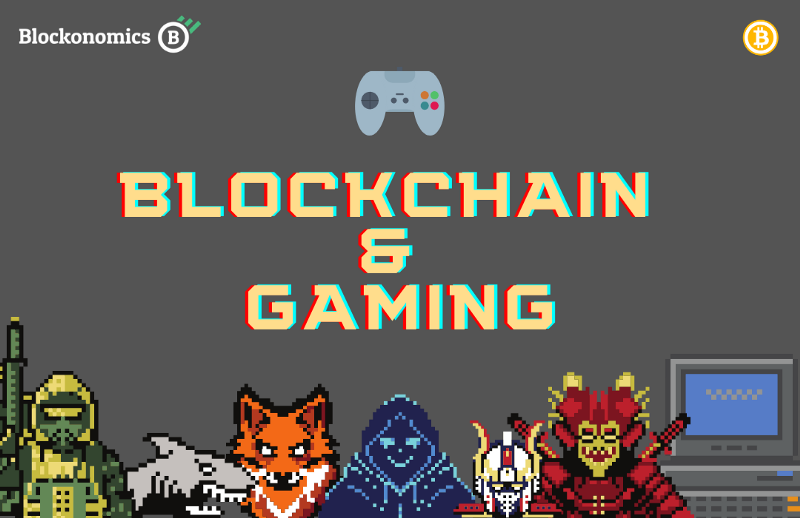
Blockchain technology has made some major strides in the past few years particularly in the financial sector, thanks to its decentralized, distributed, and immutable ledger that allows for this new generation of finance.
While this technology is still nascent its implications in various fields are immense especially the gaming industry.
Gaming is one of the ‘hottest’ spaces right now, with over 2.7 Billion gamers all over the world, which accounts for 1/3th of the world population. Its market worth in 2020 stands at $159.3 billion.
While it seems unlikely for blockchain to be used within the gaming industry, in actuality the two complement each other quite well.
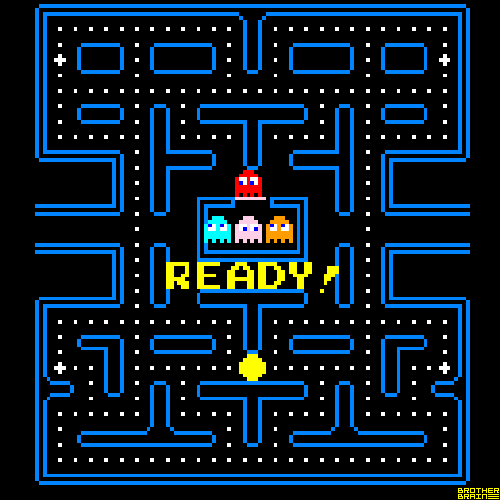
The game is efficient…
Gaming as an industry is available all over the world. Millions of players make in-game purchases and micro-transactions that require integration with payment gateways that charge high fees with additional costs including currency conversion and processing fees.
With blockchain, such fees can be eliminated or significantly reduced. Transactions over a blockchain can happen at a minuscule fee no matter how small or large the transaction.
And, all of which can happen at a blazing fast speed offering players a seamless experience.
It's all about feeling secure…
Fraud and Illicit activities have long been a pressing issue within the gaming community.
Which can come in various forms including identity theft, account hacks, fake virtual assets, payment information theft, and many more.
Virtual assets are often purchased in-game and depending on the asset, these digital items can often times fetch thousands of dollars. Entropia Universe, a multiplayer online role-playing game, once saw a purchase of a virtual nightclub for $635,000.

Suffice to saw online gaming does see some serious cash flow into its business and because of which is an easy target for cybercriminals.
Using blockchain a lot of such activities can be eliminated for good. Virtual assets will reside on the blockchain that is immutable and distributed preventing scope for duplication and counterfeit.
You got to play it to own it!
Ownership of virtual assets has been a long-standing debate within the gaming community.
While game developers offer in-game purchases of virtual assets, these assets essentially do not belong to the players.
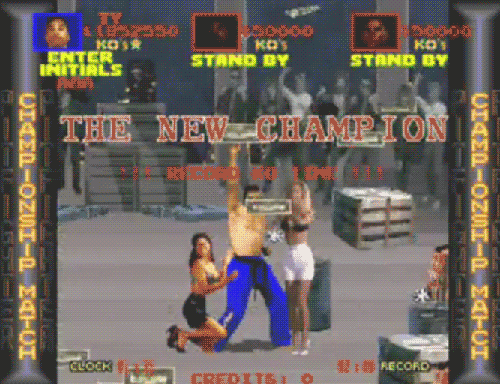
With blockchain-based technology, there can be a shift of ownership from developers to players, making the game and the assets even more valuable for the player.
Players who spent countless hours playing a game can now own the items they acquire during their gaming sessions and use them as they see fit.
Since these items would be backed by the blockchain they would be immutable, easily distributed, and authentic.
Gamify the Economy!
The introduction of blockchain to gaming can add a lot of exciting new economic avenues for players.
Traditionally, the gaming model has always comprised of players spending money on the game or in-game purchases while the developers make money.
Blockchain introduces a whole new level of decentralized gaming economics which sees a real-world application for virtual assets collected by players during the game.
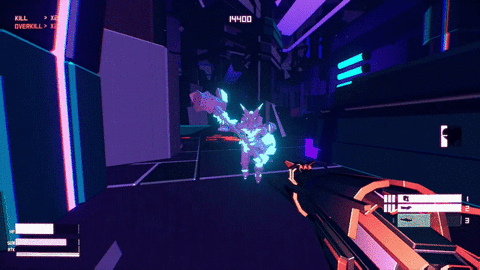
One such example would be Age of Rust by SpacePirate, which provides players with ‘Enjin Coin’ — based on the ETH chain, which can later be redeemed for gift cards, uber credits, etc.
This introduces a whole new realm for players who can now reap some real-world benefits for spending countless hours playing a game.
This truly is what ‘gamification economy’ looks like.
Some notable games employing blockchain technology
CryptoKitties
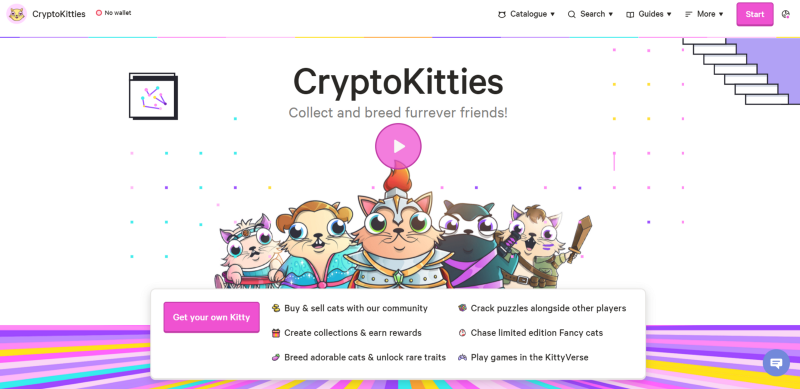
This game holds the title for the world’s first blockchain-based game. Based on Ethereum (ETH) blockchain CryptoKitties allows players to collect, breed, buy, sell cats.
Developed by Axiom Labs, this game changed the face of online gaming by adding some paradigm-shifting features to its game that were never seen before.
Launched in December 2017, the game quickly gained in popularity by attracting millions of users and about $40 million in transactions within a span of just 3 months after its launch.
The user base of the game increased to such an extent that it accounted for 30% of the traffic on the Ethereum blockchain.
Suffice to say the game's success attracted a series of investors to the company who poured in millions of dollars into the company. In March 2018, CryptoKitties was spun into its own company, DapperLabs, and raised $12 million from an investment round led by top venture capital firms, Andreesen Horowitz and Union Square Ventures.
In November 2018, the company further raised $18 million in a venture round led by Venrock, doubling its valuation.
CryptoKitties truly paved the way for future blockchain-based games, it was the first game to provide full ownership of its assets to the players with some cats being sold for as high as $300,000.
Spell of Genesis
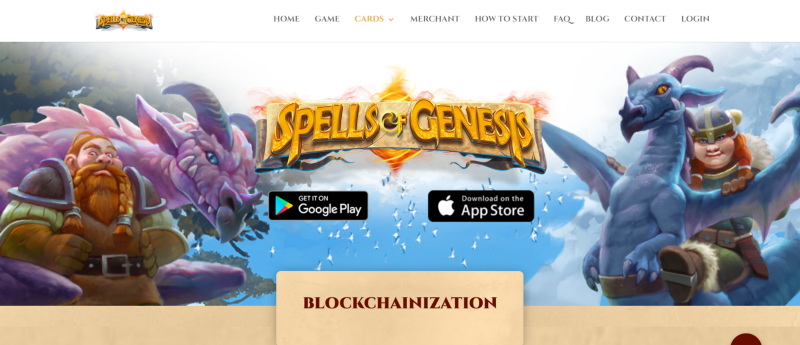
The first blockchain-based game made for mobile Spell of Genesis is a mix between point and shoot arcade-style gaming and trading cards.
The game is developed by EverdreamSoft, a swiss based game studio that launched it in 2017. Unlike CryptoKitties, which ran an investment round, Spell of Genesis ran an Initial Coin Offering (ICO) of its cryptocurrency token, BitCrystals, in 2015 and raised around $300,000 to start the development of the game.
The game allows players to collect and combine cards to create a ‘team’ used to fight enemies.
These cards can also be fused together using the process called ‘Blockchainization’. This essentially allows users to convert their in-game cards into real-world blockchain assets.
Spells of Genesis is a multi-chain game, currently compatible with Ethereum, Bitcoin, and Klaytn blockchains.
Age of Rust
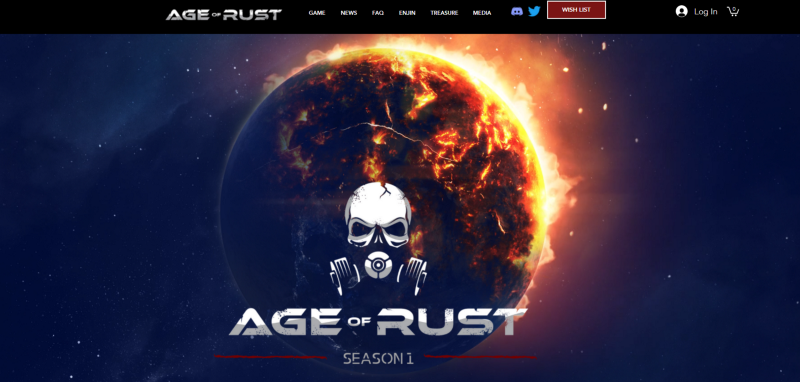
Age of Rust is a first-person single-player post-apocalypse meet cyberpunk type game.
Set in the year 4424, players are left with a grim reality of a world filled where they have to survive, solve puzzles, hunt for treasure all of the while exploring abandoned space stations, mysterious caverns, and ruins on faraway worlds.
The game is being developed by SpacePirate Games, which is still in the process of releasing the full version.
Players stand a chance to win a treasure of up to 20 BTC once the full version is released. But, be warned it would be pretty well hidden.
The game uses ‘Enjin Coin’, an Ethereum based token, as its in-game currency, and all the crypto items are stored in players wallet which is independent of the game.
Gods Unchained
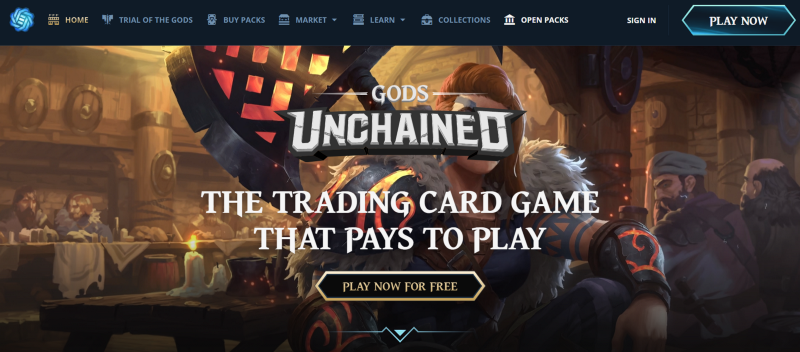
Gods Unchained is a digital card trading game based on the Ethereum (ETH) blockchain.
The game is developed by Immutable, formerly Fuel Games, an Australian-based company owned by Robbie Ferguson and his brother James who raised $2.4 million in funding. The funding was backed by Continue Capital, Nirvana Capital, Sora Ventures, and US digital currency exchange Coinbase.
The game is a free-to-play tactical card game that provides true ownership of the cards allowing players to collect, trade, and play for real-world cryptocurrency.
Conclusion
With players demanding more security and ownership of their in-game assets, blockchain provides a much-needed solution to the challenges faced by the gaming industry.
Albeit a new technology blockchain is already being embraced by the gaming industry with games like Gods Unchained, Age of Rust, Spell of Genesis paving way for future companies to embrace this technology.
Thanks to games like CryptoKitties that generated millions of dollars in revenue showing that companies can generate profits at the same time provide players with a means to earn assets with real-world utilization.
With more companies and players reaping the benefits of blockchain the future of gaming looks bright and who knows maybe this propels blockchain technology into mass adoption.

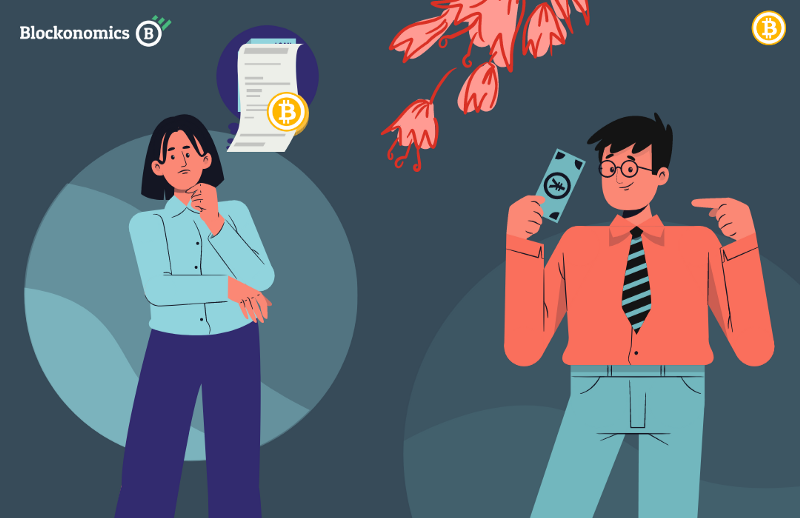
![Top 10 Tools and Resources for Crypto Research [2021]](/content/images/size/w720/max/800/1-kDyyUnRCD656bm2ny-jHag.png)
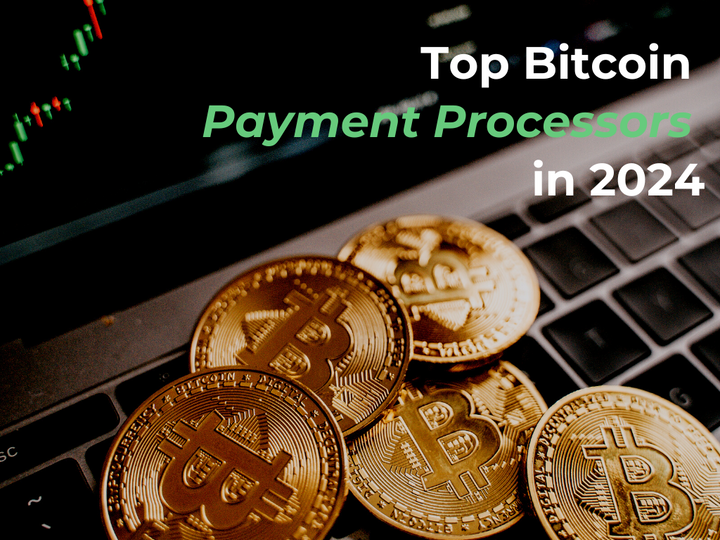
Comments ()